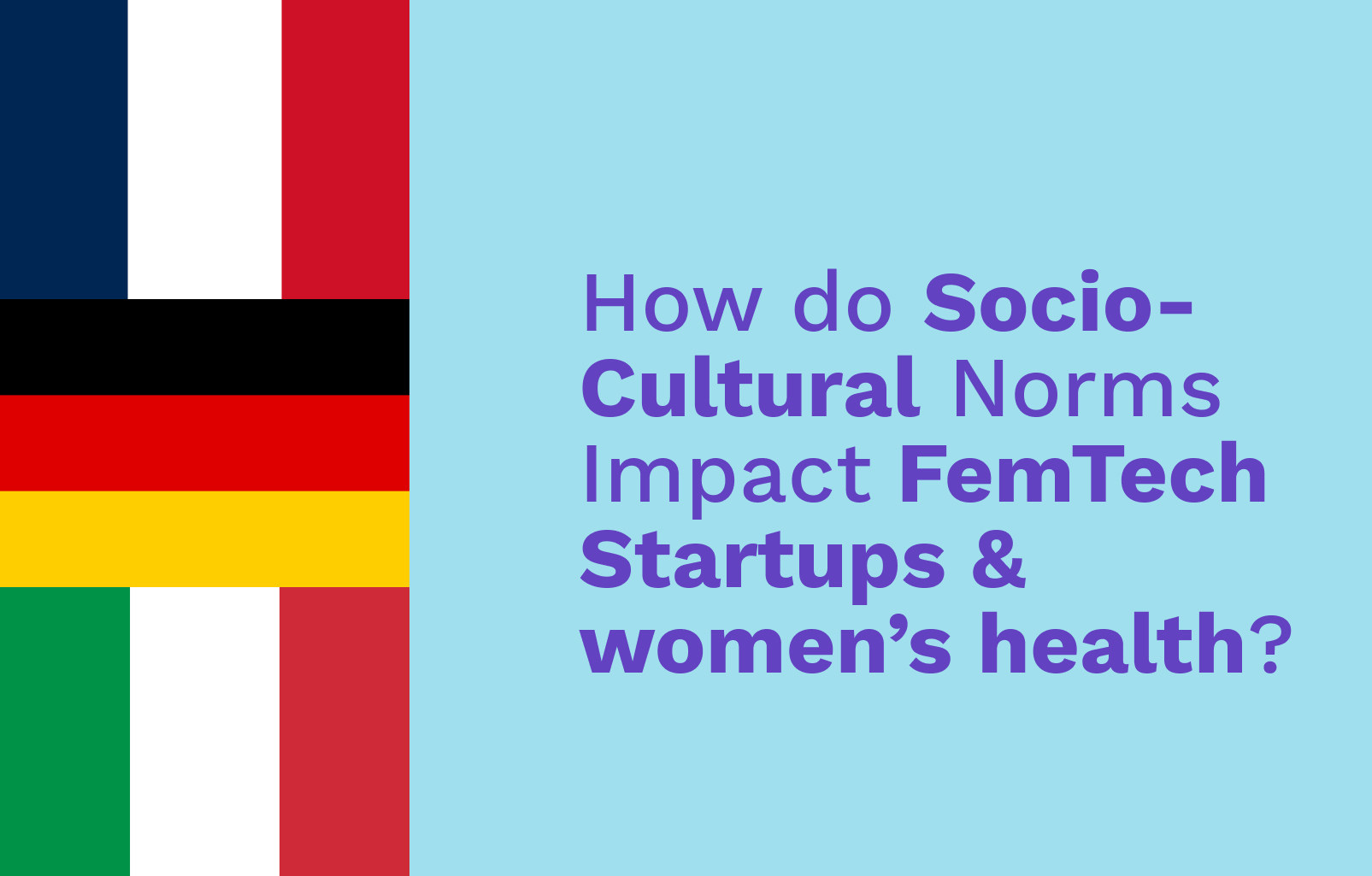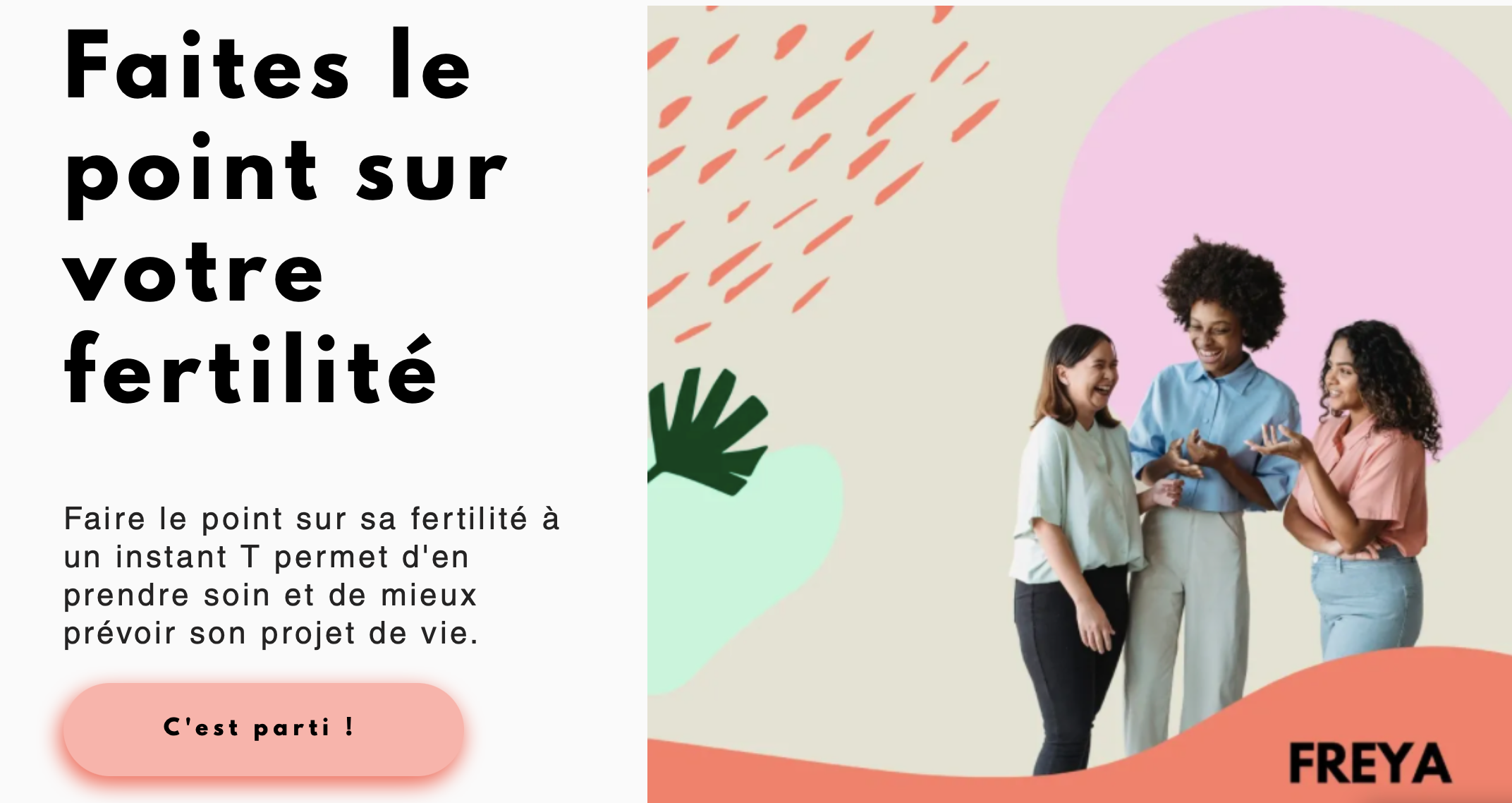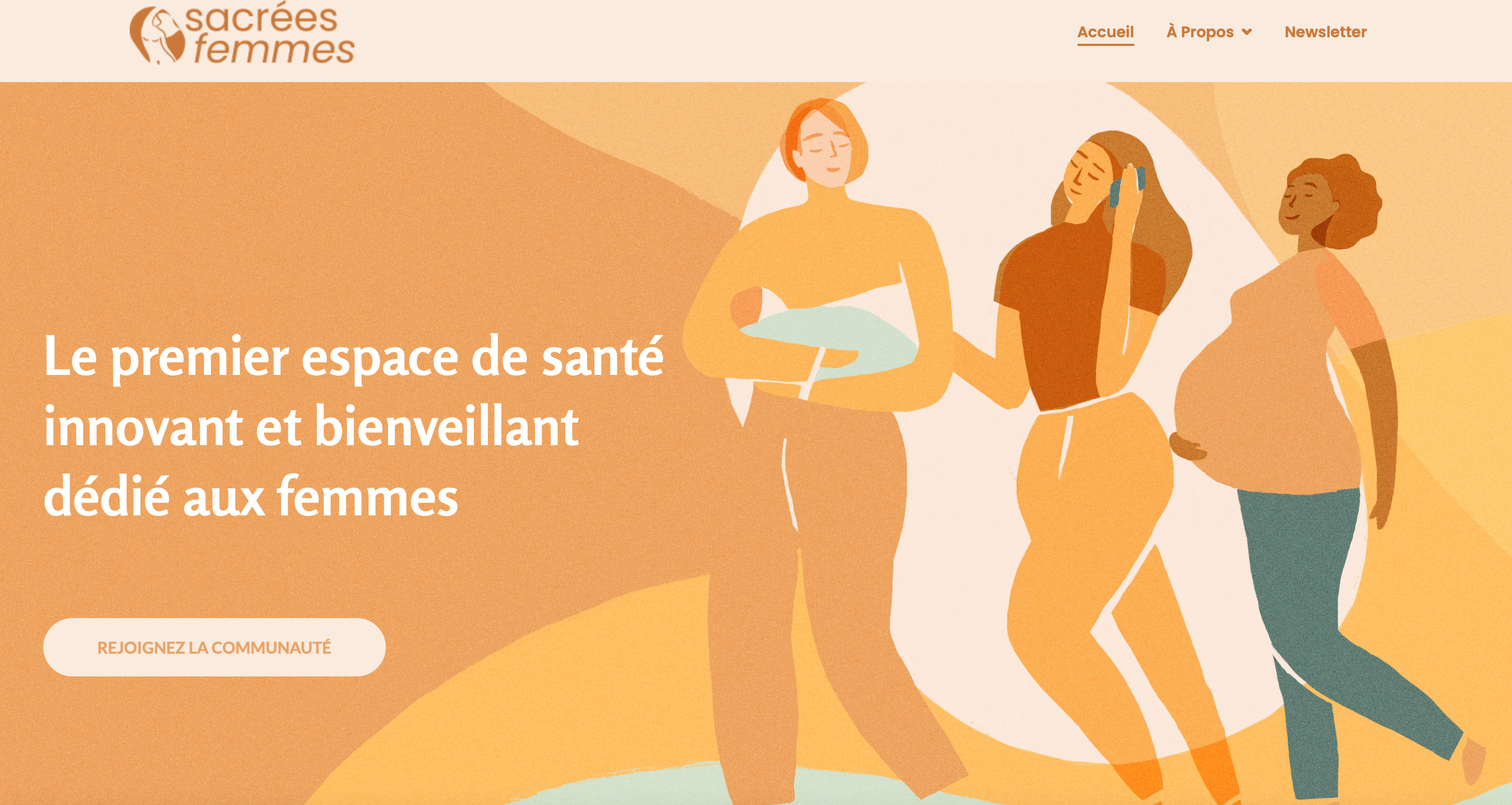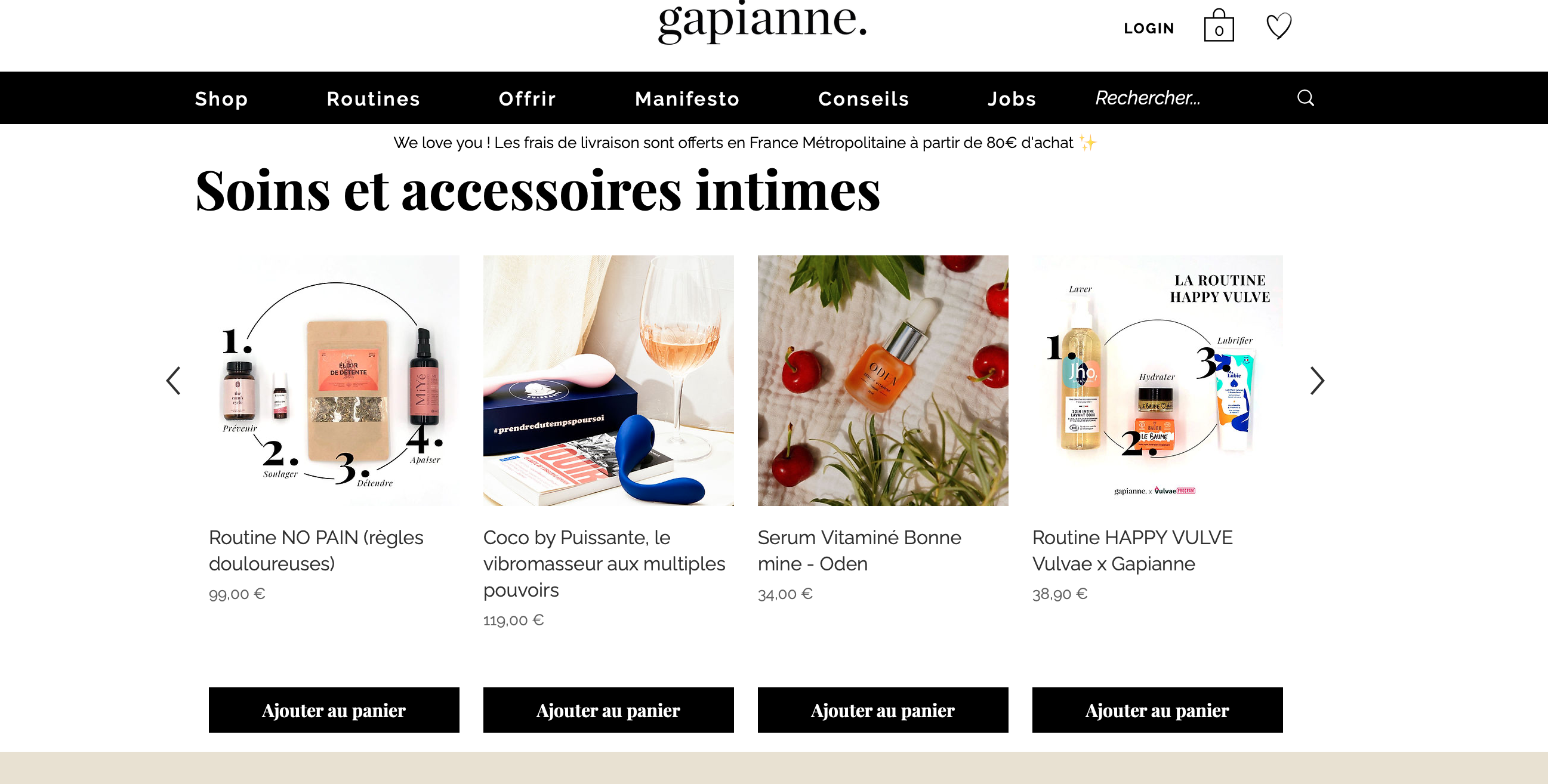
The following is a transcript of an interview by Oriana Kraft with the Founders of Freya (French Fertility Startup), Sacrées Femmes (Women’s Health Clinics) and Gapianne (An E-commerce platform for women’s intimate health needs) — all current Station F FemTech Startups on the French FemTech Ecosystem, the state of FemTech in France and how sociocultural norms surrounding women’s health have shaped their product and journey.
French FemTech Scene
What does your Startup do?
Freya: We are building a service to answer women’s questions regarding their fertility status and the actions they can take to understand, protect and improve their fertility.

Sacrées Femmes: We are building a network of women’s health clinics – composed of family doctors, gynecologists, physiotherapists, dieticians, and a psychologist.
We are also developing an app for women to take care of the health in the interim: allowing them to prepare for the appointment, ask questions to the professionals, read relevant information or watch some videos about what they are going through.

Gapianne: We are a one-stop-e-commerce platform for women’s intimate needs

How have the socio-cultural norms of France shaped approaches to women’s healthcare and attitudes towards their FemTech startup ?
Freya: Healthcare is free in France for people who are ill. Consequently, we know that whatever happens, the healthcare system will take great care of us. That’s why, as patients, we tend to have a “curative” approach to health rather than a “preventive” one. We are not prompted to take care of our health preventatively because then we have to pay with our own money.
It’s a shame because the country would save a lot of money if it invested more in prevention. It’s particularly true when it comes to infertility as infertility “treatments” are very costly and ineffective, yet, a huge amount of people rely on them.
Another consequence of that norm is the lack of patient’s empowerment. In France we have this figure of the family doctor who knows it all. There is no pedagogy and even sometimes there is a bit of disrespect towards patients, especially towards women. The female reproductive system is so complex that gynecologists can sometimes be a bit patronizing.
Sacrées Femmes: Exactly, in France, like in many other European countries, healthcare is free. So they are not going to pay for the digital service part of our plan. And that was a big challenge of the business plan, because the health system is free in France, as you go to the hospital, and you do not pay anything and you do not know even know the cost of what you consumed. Our whole business model relies on how can we optimize and improve how the time of professional is being used and focus on quality time with the woman. So a lot of things will be done beforehand through the app. With digital tools we can make better use of the professional’s time and that’s how we will fund the digital aspect of the model.
What impacts have the political landscape and regulations in women’s health had on your startup?
Gapianne : I would say the core difficulty is that FemTech is still far from mainstream. Investors are not at ease with the female health/sexual wellness topic. They think that, e.g there is no market for ‘female’ vibrators. Not to mention the sexism when it comes to business meetings. We heard the following from investors: “Don’t you have a male in the team to do the finance?” They called us “4 women with a beautiful smile.” And when we hosted in-person gatherings with women to introduce them to our products they said “Well done on your lesbian event.”
Sacrées Femmes: The regulations around what is and is not considered healthcare in France have certainly made things complicated for us. You cannot list a psychotherapist or acupuncturist for example on the same website as a gynecologist. Because the former are considered commercial whereas the latter is reimbursed by the healthcare system and you are not allowed to conflate the two. In terms of a clinic that wants to offer holistic care that certainly complicates things for us.
How do you feel FemTech can help improve the French healthcare system?
Freya: First and foremost we want to raise awareness around gaslighting. Women’s worries or pains are not fake, silly or stupid – so take us seriously! We would also like to challenge the notion hat women cannot handle medical information. There is this idea that if you let a woman know about her risk factors, her PCOS, or endometriosis for example, it would only worry her too much, it would ruin her life (and also she will come bother you with too many questions when you have other patients to treat).
We think it’s wrong. Firstly because there is absolutely no proof of that, secondly we believe that women are strong and smart human beings (oh surprise), and if you deliver the right info in the right way, it can only empower them and be useful to them.
We believe in CHOICE – if a woman wants information about her body, it is her choice, her right. Proper medical advice and education are crucial when you investigate something as emotionally involving as your fertility. That’s why our solution dedicates more time to that.
When doing a fertility check up, a woman will always have a conversation with a medical expert. Also we train our experts ourselves so we know that our users won’t have any remaining questions once they are done with our service.
Gapianne: The conversation and desire to access intimate products in France is already here, but there is no safe space for content or advice, as well as clean products, with a positive approach.
We are 34 million women in France. At each life stage, we go through specific intimate care and sexual wellness needs. We often feel ashamed, embarrassed, uncomfortable and do not know who to turn to in order to simply meet these needs. There was no existing shop to find clean intimate care products with guidance for women.
What have your biggest pain points been in terms of creating the startup (is it the regulatory landscape, sociocultural norms or is not related to femtech at all and just the general difficulty of creating a startup from scratch)?
Freya: Whenever you talk about the uterus, it becomes political. Whenever you give more rights to women or seek to empower them, a lot of people raise the alarm and start to talk about ethics. Do you remember the debate about contraception ? Abortion ? Egg freezing ? ART ?
So we’ll always have rejectors to slow us down and criticize what we do.
Regulations have also been a barrier. E-health and data protection are really important to protect consumers, but it is very complicated to understand so we need to invest in legal advice and it’s a big budget. Then we know that raising funds will be challenging, simply because only 5% of VC funds goes to startups founded by women.
Why did you decide to create your startup/solution and how do you envision it impacting women’s lives?
Freya: I started to feel the pressure for kids when I got married. I asked my gynecologist how long I could wait, and if I could do a fertility check-up just out of curiosity, and to see how everything was working. He refused to discuss the topic before I was ready to have children, and made my questions feel completely illegitimate. So I started digging on my own, and got lost in the mass of information of unequal quality available online. I started interviewing friends and then other women on the topic, and realized I was not alone. I thought something had to be done to ease women’s access to the right information. The interviews became a podcast named Choice, and the company idea grew from there.
Caroline, my co-founder long feared she was sterile because so many of her friends were having troubles, that’s why she created Freya. Freya will help detect risk factors before it’s too late and address them. Doing so, we will help reduce the number of infertility cases while answering women’s need for reliable and personalized information.
Sacrées Femmes: I spent seven years in Southeast Asia. I had three children over there. So all my maternity experience was in southeast Asia from being pregnant to giving birth, to postpartum, breastfeeding, raising very young children. My experience was a really good experience. It was so different from what I could hear from my friends in France, especially because there is a very high solidarity among women and then know their body very well. Meditation. Massage is part of their culture and that allows you to know your body better. Whereas I was completely disconnected from my body when I arrived there from France. When I was navigating the postpartum phase a lady would come to me to do a massage for my uterus. And that forces you to connect to your body – because a lady is literally coming to you to massage you and talking to you about your pain – so it forces you to connect with your body and really reflect. When I came back to France and I was here, all my friends is, were traumatized or embarrassed by their postpartum experience. Three days after giving birth they were already going out. And going around and, you know, they were in pain, but they just ignored it because that’s how you’re taught to do things around here.
And I was like, okay, I have no choice. I must bring this holistic approach around birth to France. It’s a no brainer. It’s been such a transformative experience for me that I have to bring it over here as well.
____________________________
To learn more about FemTech, sociocultural norms surrounding women’s health, the challenges FemTech Startups face, how they can overcome them, how the healthcare system and burgeoning FemTech market compliment each other and much more — register for free to attend the FemTechnology Summit June 1 + 2 here : https://hopin.com/events/femtechnology-summit/registration